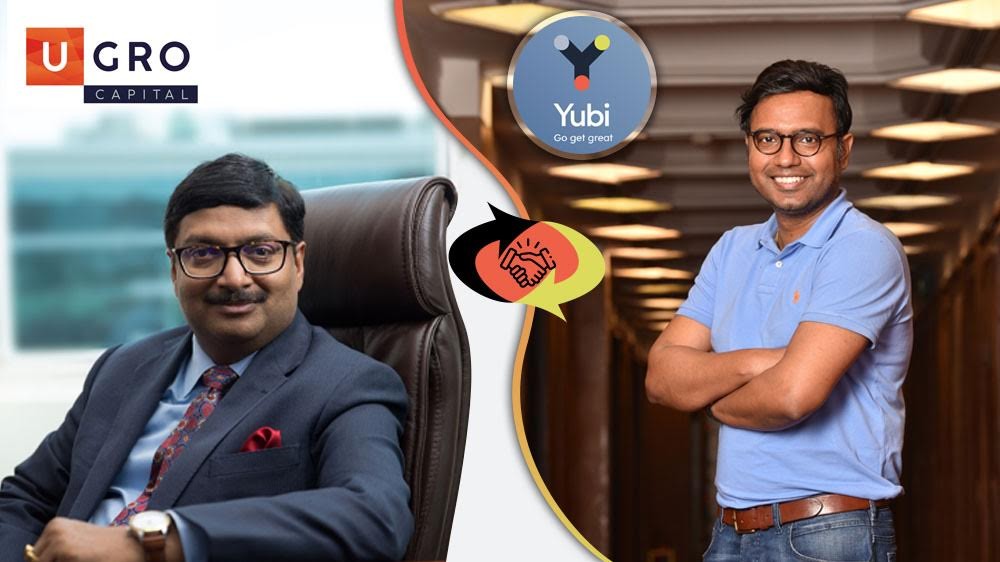This Delhi Based Startup Is Helping Small Businesses Be Big


The supply chain consists of a number of problems. Raw materials could not be delivered, payment could not be cleared and the most heard one is; the finished goods are in the freight. These problems are not always an issue for the customer but at the end of the day, someone that loses is the business. To help businesses in solving supply chain problems in a tech-friendly way, a start-up, AKSUM trademart came into the picture. We tried to understand more about how it functions with its Co-founders Sumit Bhatia and Ankit Jain.
Where did you get the Idea for Aksum?
Ankit and I were a part of the commodity industry for a long time. I was heading the operations and he was more on the executive side. We were both customers and suppliers to each other. After having this type of relationship for a long time, we got to understand a number of inefficiencies in the supply chain, which were not addressed by the contemporary players. So this was simply how the Idea of Aksum came up. Therefore, we decided to work on a business model which can solve those problems for almost every type of corporation.
Could you please elaborate on the services that you provide?
The supply chain is itself a long procedure. The process starts with the procurement of raw materials, and then the company manages these raw materials in their inventory of raw materials or stock in transit. From this raw material, the company start the manufacturing process. Once the product gets manufactured, the company supplies it to their dealers, distributors or the customer. In the end, the collection of receivables is done. Now, in this whole process, which I listed, there are a number of inefficiencies which exist. For instance, on the manufacturing stage not using the full capacity of the manufacturing power can be inefficiency; or at the procurement stage lack of transparency could be one.
These inefficiencies do nothing but ultimately increase the cost of the final product and become a burden for the end-point consumer. It makes either the product costlier or reduces the profitability. Our aim is to remove these inefficiencies and provide a flexible framework for businesses.
How Aksum is beneficial for MSMEs?
Being in the industry for a long time, we came to know that most small businesses are unable to buy the raw material at the cost that big players get. For example, if you are buying paint, as a large company, you will get that bulk buying advantage. You can partner with the other company for the material in high volume. At the same place, for Tier I or II vendors, ordering a smaller quantity of the same material, there would be no or minimal benefits. The difference between prices on a product-to-product basis can be as high as 2 to 10 per cent. This price gap is due to only two reasons, they are unable to buy in bulk and second, they are unable to buy together.
This is where we step in, and say if we have aggregated demands for the same product, we will buy that product and redistribute it in smaller quantities and give you the bulk buying advantages. Also, we help businesses to manage their inventories. Suppose a small business plans to buy steel from a big name like Tata, he has to give a big order. Even if he manages to give the bulk order, by committing a big amount as capital, lack of visibility creates a lot of issues. The customer has to take the follow-ups, he doesn't know whether the full bulk order will be delivered in one go or the producer will send it in small lots. In most cases manufactures send the order in one go which creates the problem of inventory management.
What we do is take a comparatively smaller amount from the customer and we commit the capital on the behalf of the customer to the mill or manufacturer and store the raw material in a third-party warehouse at nominal costs.
Also, we have seen that a number of businesses do not come out of certain geography to venture out. Now, this is again where we step in and say that we have customers who are interested in buying the product that you produce. In this way, we can showcase or market your product to a wider audience. We help such businesses come out of their geography.
What is the geographical presence of AKSUM?
We are headquartered in Delhi and we have supplier partnerships across 11 states, which are spread both the western southern and the eastern side of India. We have executed sales across over seventeen cities, we have fostered a partnership with Jindal Stainless, Tata Projects, Larsen and Toubro, and on the medium scale, we have companies like the Shri Rathi group and businesses from different sectors.
Logistics is the biggest problem that most MSMEs face these days. How do you see it?
Logistics is indeed an important element in the whole supply chain process. Even If you are able to procure a good amount of final goods but are not able to deliver them on time all the advantages go away. How we manage it is that we have a third-party logistics provider and we are partnering with some other players too in this range to develop the logistic systems. This adds to our existing services and helps us in different geographies.
What are the expansion plans ahead?
We are planning to expand our geographical presence to western states, primarily Maharashtra and Gujarat and also to the southern states like Karnataka and Tamil Nadu. We see these states as major hubs for industrial developments happening across many commodities. Therefore we want to be present in these states physically although we are present in these states in terms of the partnership. In terms of products, we are present in steel, and other construction materials and we want to expand the products portfolio to polymers and textiles.











